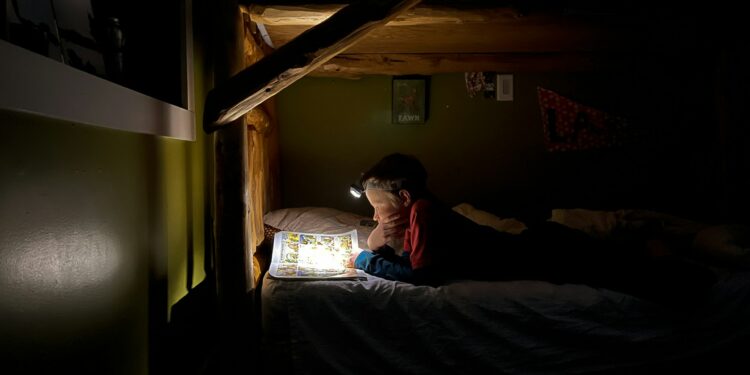It’s time to sleep earlier.
A recent observational study from Imperial College London indicates that individuals who go to bed later than 1 a.m. may face an increased risk of developing mental health issues, regardless of whether they identify as morning people or night owls. Researchers analyzed data from the UK Biobank, focusing on nearly 74,000 community-dwelling adults, with an average age of 63.5 years and predominantly female participants.
The findings suggest a correlation between earlier bedtime and better mental health outcomes. Those who retired before 1 a.m. tended to exhibit fewer instances of mental, behavioral, and neurodevelopmental disorders, as well as lower rates of depression and generalized anxiety disorder (GAD). This association persisted across different chronotypes, challenging previous assumptions about the relationship between sleep patterns and mental well-being.
One intriguing discovery was that individuals with an evening preference who stayed up past 1 a.m. experienced the poorest mental health outcomes. This phenomenon, termed “The Mind After Midnight,” suggests that late-night wakefulness may lead to feelings of isolation and lack of social support, potentially exacerbating mental health issues.
Further insights from the study suggest that late-night sleep may disrupt rapid eye movement (REM) sleep, which plays a crucial role in mood regulation. Reduced REM sleep has been linked to various neuropsychiatric disorders, including depression and PTSD, highlighting the importance of maintaining a regular sleep schedule for overall mental well-being.
While chronotypes, which regulate the body’s internal clock, interact with environmental factors like artificial light and work schedules, the study’s findings challenge conventional beliefs about the optimal sleep-wake patterns for mental health. Contrary to expectations, alignment with one’s chronotype did not consistently correlate with better mental health outcomes, suggesting a need for further exploration into the complex relationship between sleep timing and psychological well-being.
In conclusion, the study underscores the importance of prioritizing sufficient and timely sleep to support mental health, regardless of individual chronotype preferences. By understanding the impact of sleep habits on psychological well-being, researchers and healthcare professionals can better tailor interventions to promote holistic health and wellness.

































Discussion about this post